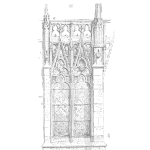
Discipline, look it up in the dictionary and you will find the following definition; the practice of training people to obey rules or a code of behavior, using punishment to correct disobedience.
People tend to get nervous when the word Discipline pops up at the top of a presentation. Truth is there are several definitions to this word. As an example, Discipline is also a branch of knowledge one studies in higher education.
The discipline I refer to is that of self control. The ability to see a set of tasks through to completion. The discipline required to identify a critical asset as a good candidate for RCM analysis. To conduct that analysis, implement the tasks identified by the RCM team, schedule them into your work routine and achieve a sustained improvement.
Discipline or the lack there of, is a trait that can be displayed by individuals or organizations. If you’re interested in understanding or making the determination of an organizations discipline simply look into and ask questions about two key areas where discipline is required.
Does the organization have a Management of Change policy/procedure in place? The lack of a MOC process is a good indication the organization lacks discipline.
Is the MOC process followed?
It’s one thing to have a MOC policy in place, it’s another to be able to show the organization adheres to it.
Ask the line Operators if they are ever asked to run experiments or trials on their equipment. If the answer is yes there should be a trail of signatures from Operations, Engineering, Maintenance and Quality. Lack of that trail indicates a lack of discipline.
Why is discipline so important?
Sustained Continuous Improvement can not occur without discipline.
Your organization will only ever experience small quick wins that while at first might be impressive, 6 to 12 months later a simple change in leadership or direction will negate the improvement and the performance will again drop off.
Discipline is a function of leadership and has very little to do punishment. In fact, great leaders often display discipline in how they go about doing their jobs on a daily basis.
Lack of discipline in an organization is a sure sign that sustained improvement can not and will not occur.
For those who have read my book “Reliability Centered Maintenance – Using the RCM Blitz™ Method, you know it’s a combination of Leadership, Structure, Discipline and Training that ensures sustained success. Take one of these 4 elements away and the probability of sustained success is highly improbable.
Discipline is an action, it’s the difference between those who talk about achieving sustained improvement and those who actually do.
Doug Plucknette, Principal & World-Wide RCM Discipline Leader at Allied Reliability Group is a Reliability Engineering Consultant and Published Author of “Reliability Centered Maintenance using RCM Blitz™ and Clean, Green and Reliable. Having created the RCM Blitz™ Methodology he has been an RCM Practitioner and Trainer for over 20 years. Doug resides in Spencerport, NY and can be reached at plucknetted@alliedreliability.com
Leave a Reply